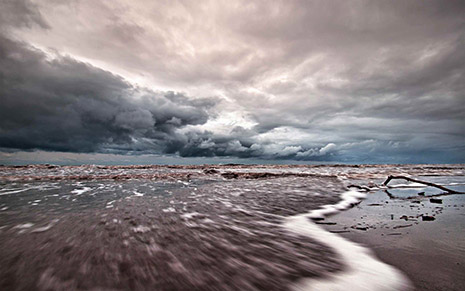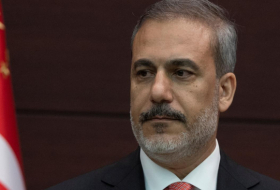Never-ending Story of the Caspian: Legal Status, Astrakhan Summit and not only

However, legal status questions raised right after the ‘Contract of Century’. Apart from delineation, definition of the Caspian as a whether ‘lake’, ‘basin’, ‘sea’ [enclosed/semi-enclosed] was also disputed matter. Though, article 122 of the UN Convention on the Law of the Sea define the Caspian Sea as a semi-enclosed sea, Azerbaijan, Kazakhstan and Turkmenistan are non-signatory to UNCLS, which makes provision disputed and unbinding for all littoral states. There are different approaches to delineation of the Caspian by littoral states, as Azerbaijan proposes ‘national sectorial division’, Russia ‘condominium’, Iran ‘equal division for each’, while Turkmenistan’s position changed several times because of its dispute with Azerbaijan for oil fields in the Caspian. Different approaches create divergence between the interests of the littoral states and cannot bring to final solution on legal regime.
Despite the contradiction with Iran and Turkmenistan, three littoral States – Azerbaijan, Kazakhstan and Russia solved their problems between themselves by signing bilateral and trilateral agreements (1998, 2001 and 2003) on demarcation of their sectors in the Caspian Sea. As those agreements abandoned Iran and Turkmenistan, the littoral sates could not come with final resolution for the Caspian. Recently Russia hosted 4th Caspian Summit in Astrakhan. If to rely on declarations of the Head of States, majority satisfied with outcomes, though not all. The finalization of the Convention on Legal Status of the Caspian Sea is supposed for the next summit in Astana.
Astrakhan Summit - New Breakthrough in Negotiations?
Amid Ukraine crisis, sectorial sanctions over Russia, Vladimir Putin tends to seek new allies and platforms to unite former Soviet republics by hosting recent Astrakhan Summit. Whereas, signed documents and declarations show that Summit was concluded with positive outcomes for many, though not all problems sorted out. On 29 September 2014, the heads of the Caspian littoral states came together in the 4th Caspian Summit in Astrakhan to discuss key issues regarding to legal regime in the Caspian Sea, security, biological resources and environment etc.
In their speech, Presidents called Summit a new breakthrough in a view to solve 18 years-long disputes regarding the legal regime in the Caspian. In his speech, Vladimir Putin stated that "we agreed principles of the five-sided cooperation in the Caspian Sea which answers to the long-term interests of all parties and grateful to partners for their acceptable compromises. I am sure that, we will be able to agree at the next summit on what have not been agreed upon yet and the finalization of Convention on legal status of Caspian Sea is ahead.” (1). Apart from that, he highlighted the coordination of future activities in regional energy security and preservation of the environment. By mentioning in his speech - "long-term interests, acceptable compromises, what have not been agreed yet, coordination of activities in energy security, environment of Caspian”, Putin precisely emphasized Russia’s strategy towards Caspian. Putin also mentioned that, we could agree on delimitation of water areas, seabed and subsoil, navigation and fishery and common use of surface. (2) This is what exactly Russia wanted.
Iranian President Hasan Rouhani mentioned that "The decision-making on Caspian is possible by consensus. However, if each state considers their own national interests only, we cannot come to solution. We can create a fair competition without participation of non-Caspian countries and we will be able to provide security in the region” (3). Rouhani implicitly declared its previous position again and highlighted inadmissibility of presence of non-Caspian states in the Caspian Sea. Rhetoric of Rouhani was relatively moderate than the previous Iranian leaders. Divergence between Iran’s position and other littoral states abandoned Iran from bilateral agreements on legal regime. Because, if Iran accepts the ‘median line’ or ‘national sectors’ principle regarding surface, seabed and subsoil, it will be granted with 13% of Caspian only out of its - ‘20% claim’.
Kazakhstan’s President Nursultan Nazarbayev mentioned that, "we all accepted the proposal of Turkmenistan to establish the Permanent Economic Forum of the Caspian Sea. I proposed the establishment of Free Trade Zone. Further initiative might be the creation of any organization that will monitor all those decisions (4). It is much better to establish relevant organization similar to Organization of the Black Sea Economic Cooperation, namely ‘Caspian Sea Economic Cooperation Organization’ to discuss not only economic issues, but also security problems, cooperate for information sharing, rescue/search operations, joint military trainings etc (5).
Turkmenistan’s President Gurbangulu Berdimuhammedov mentioned that, "Any politicization of energy projects in the Caspian is counterproductive. This applies to construction of pipelines as well, which is the sovereign right of States on whose territory they pass and it should be done upon their consent (6). Turkmenistan demonstrated the willingness for Trans-Caspian pipeline, but this is what Russia and Iran always opposed (the construction of this pipeline).
Azerbaijan’s President Ilham Aliyev mentioned the satisfaction of Azerbaijan with outcomes and agreements and hope to solve unresolved problems (7). Noteworthy point was that President Aliyev was moderate and diplomatic enough in this speech by mentioning latest developments and perspectives regarding to Caspian, without making concrete statement on military presence of non-Caspian states, Trans-Caspian pipeline, and territorial disputes with Turkmenistan.
President Aliyev also mentioned that, "bilateral and trilateral agreements between Azerbaijan, Kazakhstan and Russia are very important in terms of regulation of legal regime in the Caspian Sea and the provisions of those agreements might be a good basis for delineation of the Caspian’s seabed. We believe that the presence of the armed forces of the parties and any military activities in the Caspian Sea should be based on the principle of equal security for all Caspian states (8).” However, given the misbalance among the armament policies (9) and differences in their threat perceptions, it will not be easy to keep absolute armament balance in the Caspian.
Ilham Shaban, Director of the Center for Oil Studies, says that, though Azeri media writes that agreed principle of delineation (15-mile national and 10-mile fishing zone) is contrary to the interests of Azerbaijan, which leaves offshore oil and gas platforms out of these zones, those deposits are located at the bottom or in the depths. Azerbaijan, Kazakhstan and Russia recognize the sectorial division of the seabed, though there is a divergence between Ashgabat and Baku on that. However, it does not pose a direct threat to the implementation of the Trans-Caspian gas pipeline. After all, it will lay down under the bottom of the sea, but not the water column” (10).
Possible Challenges
Several provisions of the Final Communique of the Caspian States in Astrakhan Summit are noteworthy: I. It reaffirms non-use of force and threat; IV. Ensures the stable balance of armament; VI Inadmissibility of military presence of the non-Caspian states in the Caspian (11). The provisions No.4 and No.6 are fully in favor of Russian and Iranian interests, since from very beginning they were not happy to see foreign actors in the region and their endeavors to establish a military presence in the Caspian Sea. However, thus far, there were not any foreign military presence in the Caspian Sea. The US or NATO don’t have any ships in the Caspian, as they both need to cooperate with Russia to get an access to the Caspian through only access – Volga river. Current cooperation of Azerbaijan and Kazakhstan with the US through different programs in order to modernize and rearm their navies, to increase maritime security, professional military education etc, should not be considered a military presence (12) (even indirectly). Nevertheless, joint declaration of the littoral states on preventing military presence of non-Caspian states in the Caspian Sea demonstrates the solid position and clear message from Russia and Iran to West.
However, to what extent these provisions will prevent the certain littoral states – Azerbaijan and Kazakhstan from cooperation with external actors (US, Turkey, South Korea, Israel etc). From the other hand, Article 29 of the Military Doctrine of the Republic of Azerbaijan specify that:
"Azerbaijani Republic does not allow placing of foreign military bases within its territory, except the cases stipulated in the international treaties, which it supports. However in case of fundamental changes in military-political conditions, Azerbaijani Republic has a right to place foreign military bases within its territory or temporarily to allow foreign military participation in other form” (13).
Given the Article 11.2 of the Constitution of Azerbaijan – "Internal waters of the Azerbaijan […] are integral parts of the territory of the Azerbaijan” (like its air space and lands), to what extent Article 29 of the Military Doctrine (to place military bases and allow foreign military participation) and Provision No.6 of the Astrakhan Communique (inadmissibility of military presence of non-Caspian States) contradict each other, the issue remains under question. It raises questions about similar divergence for and possible binding effect of the Astana Convention, which is going to be adopted in the next Caspian summit in Astana. However, Article 151 of the Constitution of Azerbaijan may clarify this question in certain extent that:
"Whenever there is disagreement between normative-legal acts in legislative system of the Azerbaijan Republic (except Constitution of the Azerbaijan Republic and acts accepted by way of referendum) and international agreements wherein the Azerbaijan Republic is one of the parties, provisions of international agreements shall dominate.” (14)
Moreover, on 13 October, Russian Defense Minister Sergei Shoigu paid official visit to Azerbaijan and met Defense Minister of Azerbaijan, Zakir Hasanov. Sergei Shoigu said that "We proposed the creation of a collective security system in the Caspian region [and] to create a council of naval commanders.” (15) Defense Minister Zakir Hasanov said that, they discussed "bilateral cooperation in the Caspian Sea between Russian and Azerbaijani Navy and to held joint command-staff and tactical exercises in the Caspian.” (16) In the light of deterioration of relations between Russia and Azerbaijan on ‘Gabala’ Radar Station and Azerbaijan’s rejection to Eurasian Union, Russia was seeking new alternatives to boost relations with Azerbaijan.
The determination of absolute legal status of the Caspian Sea became one of the bottlenecks since the disintegration of the USSR. Therefore, the compromise is needed. Although, final compromise will not comprise absolute position of the littoral states, but it can provide absolute solution at least. The littoral states should favor a multilateral cooperation and an action in order to turn the Caspian to cooperation and peace platform, but not competition arena. The Caspian Sea should be a basin where it can unite its coastal countries, rather to divide them. Declarations and agreements should not be symbolic, but substantial and more than just words on the paper. The security provision of the Caspian must be based on shared sense of common security. In this context, the Caspian countries can pool their capabilities together within a new-established organization and promote for better future of the Caspian Sea. Nevertheless, the outcomes of the Astrakhan Summit shows that, ‘the job is half-done’.
Ilgar Gurbanov















































